When diving into podcasting, it’s essential to understand “the differences between B2B podcasting and other types of podcast.” Unlike B2C or entertainment-focused shows, B2B podcasts cater to a niche audience with content that builds authority, offers in-depth industry insights, and fosters professional relationships. In this article, we’ll dissect these distinctions, examining how B2B podcasting stands apart in terms of content, audience engagement, and strategic outcomes, keeping in mind the differences between B2B podcasting and other types of podcast.
Key Takeaways
- B2B podcasts focus on establishing industry expertise and building professional relationships by providing valuable insights and addressing the specific pain points of a niche audience, with an emphasis on high-quality content and audio.
- The format selection for B2B podcasts – interview-based, panel discussions, or solo episodes – depends on the business’s objectives and audience, with interview formats often preferred for leveraging expert insights and enhancing credibility.
- Effective B2B podcast strategies include distributing episodes through various platforms, utilizing promotional channels like social media, and measuring success with performance data such as episode downloads and listener engagement.
Understanding B2B Podcasting
B2B podcasting is an effective tool for businesses to establish industry expertise, engage with specific audiences, and build relationships with potential clients. Its primary objectives include producing authoritative podcast episodes to enhance the brand’s credibility and fostering strong relationships with the audience. This isn’t your typical podcast, as B2B podcasting places emphasis on addressing the target audience’s pain points and providing valuable insights, while also establishing thought leadership.
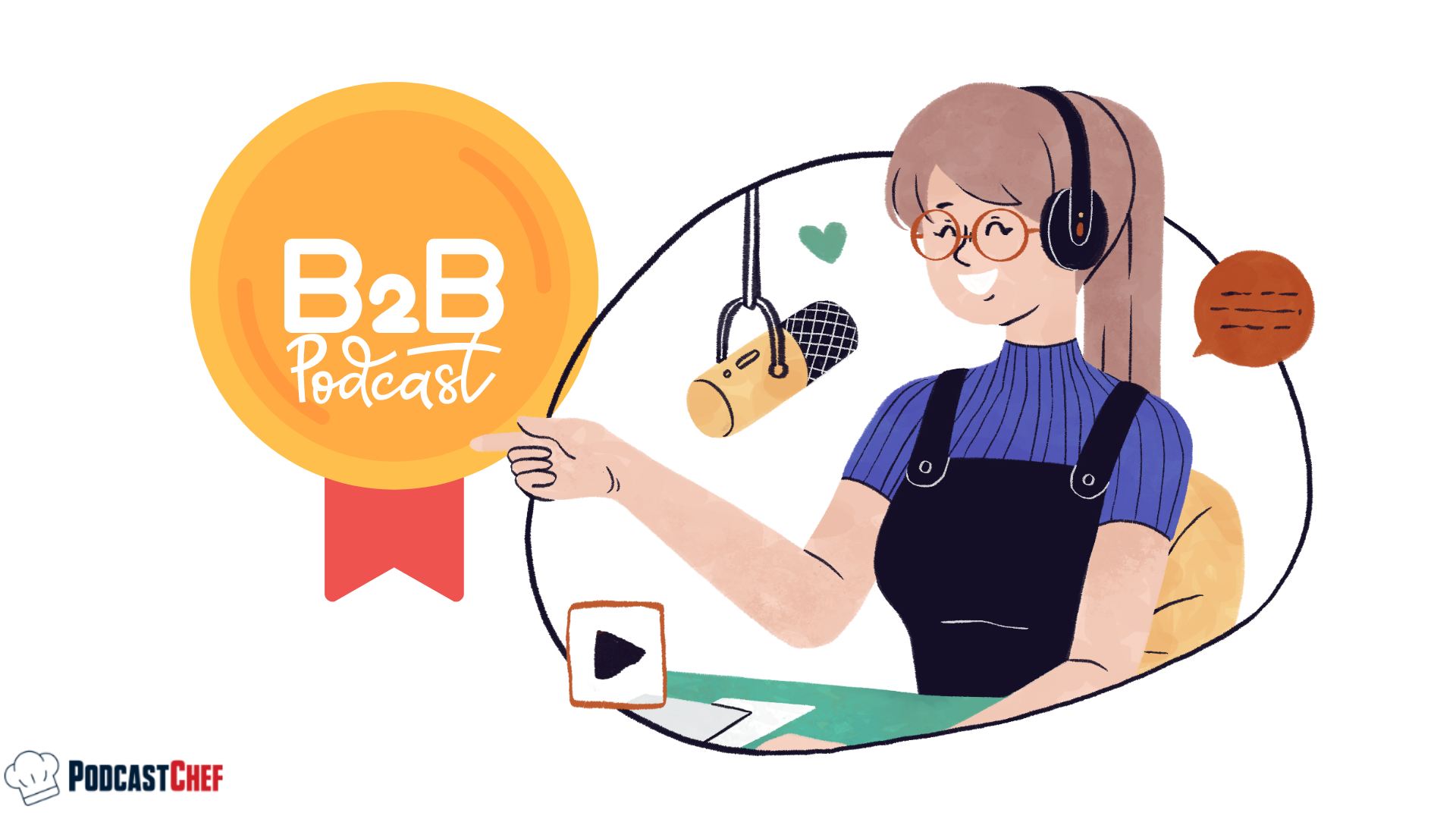
Also, audio quality is significant in B2B podcasting. High-quality content is the cornerstone of B2B podcasting, and audio quality significantly impacts the audience’s perception of the brand’s professionalism and commitment to excellence. Utilizing reliable audio editing software ensures optimal audio quality, thereby upholding the brand’s image and credibility.
Key Characteristics of B2B Podcasts
Examining B2B podcasts more closely, their distinguishing features include:
- A focus on industry-specific content
- A professional tone
- The incorporation of expert interviews, often showcasing discussions with industry thought leaders or subject matter experts to offer valuable knowledge and insights
A useful metric to gauge a B2B podcast’s success and reach is monitoring episode downloads.
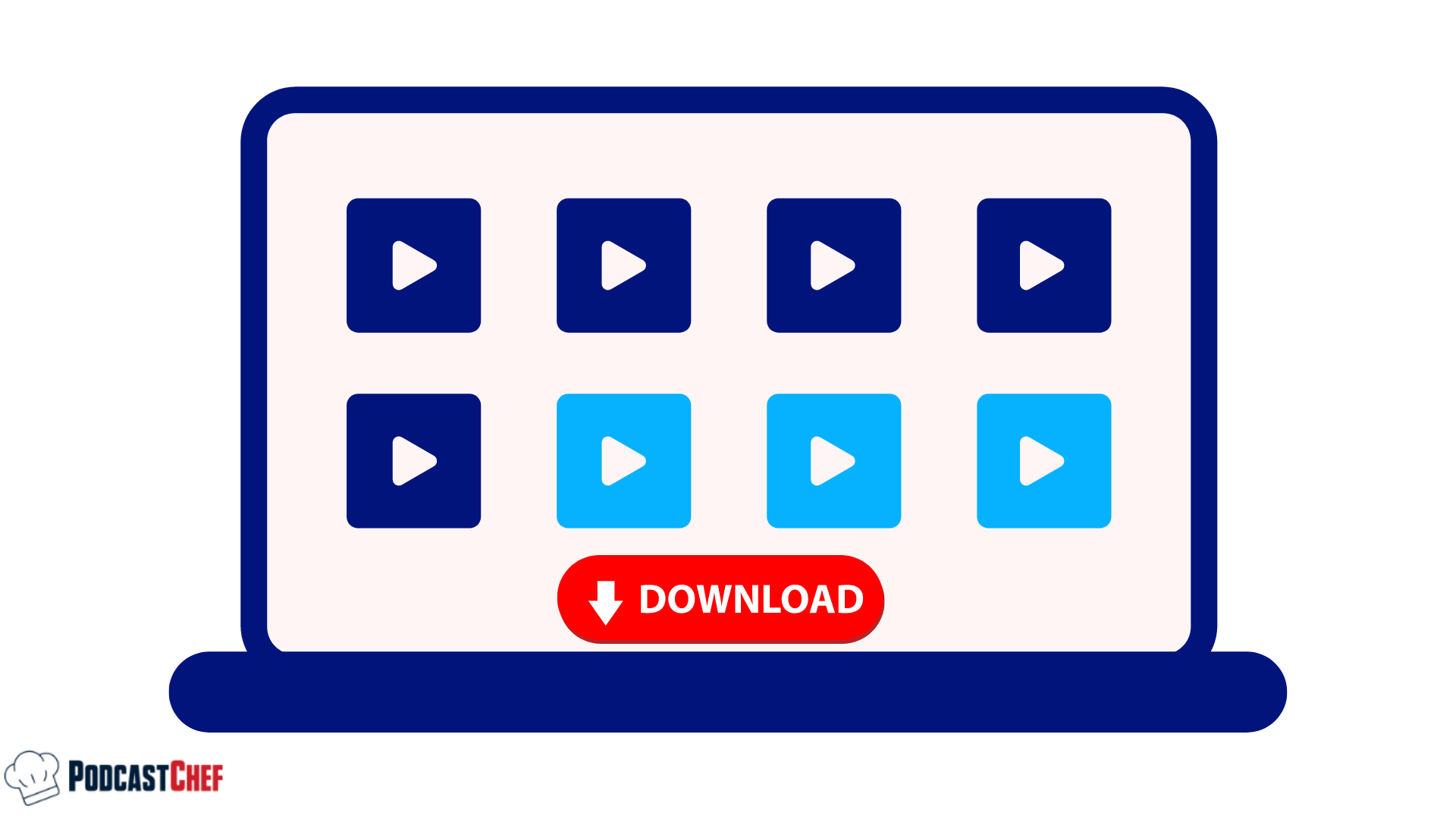
In essence, the primary goals of B2B podcasts are to provide valuable knowledge and establish the business as a thought leader. They strive to offer practical strategies to help businesses thrive, making them a valuable resource for listeners. With just a few clicks, listeners can access a wealth of information and insights through B2B podcasts.
Comparing B2B Podcasts to Other Podcast Types
While B2B podcasts have distinct features and benefits, it’s necessary to know how they stack up against other types of podcasts. B2B podcasts are designed to appeal to a specific group of industry professionals and key decision-makers, offering content tailored to meet professional requirements and interests. Contrastingly, B2C podcasts engage a diverse consumer audience, addressing a myriad of individual preferences and covering a broader spectrum of subjects.
The content focus of B2B podcasts also differs significantly from other podcast types. B2B podcasts emphasize detailed industry knowledge, challenges, and thought leadership, while B2C podcasts prioritize product benefits, entertainment, and establishing an emotional consumer connection. Compared to educational podcasts, which focus on delivering structured, instructional content, B2B podcasts aim to establish industry authority, engage in content marketing, and create networking opportunities.
B2C Podcasts
B2C podcasts have their unique objectives and content strategy. Their main goal is to entertain and inspire listeners while also offering practical tips and insights to enrich their daily lives. This is achieved by providing a variety of content that caters to different interests and needs. B2C podcasts are designed to appeal to a wider audience through storytelling and relatability, contrasting with B2B podcasts that focus on industry-specific content targeting a specific audience.
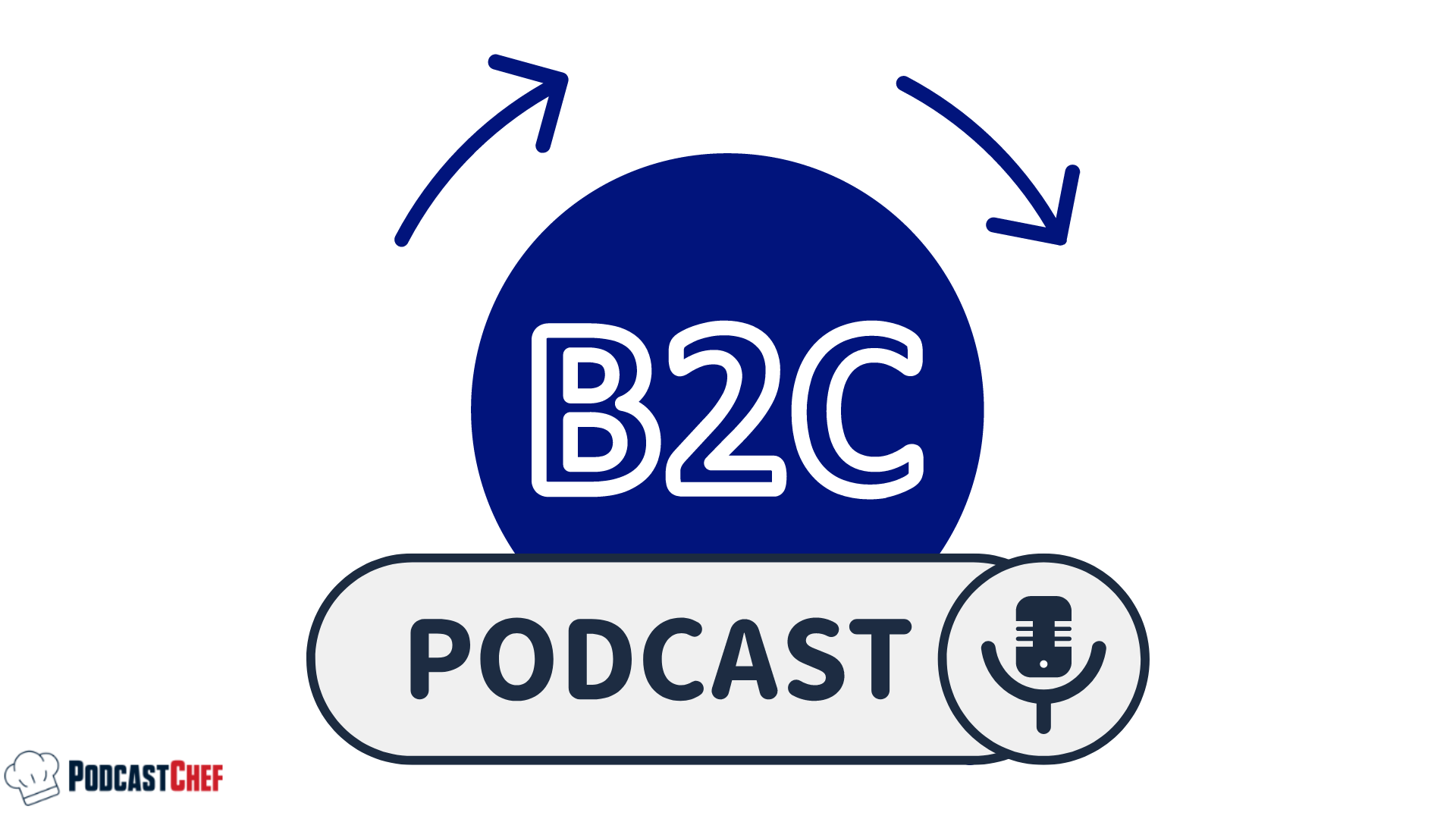
The communication style in B2C podcasts is often characterized by:
- Less formal language
- Storytelling
- Humor
- Relatable anecdotes
- Casual, friendly, and conversational tone
These elements are used to captivate target audiences and establish a connection with the broader consumer audience.
Educational Podcasts
Educational podcasts are centered around the dissemination of knowledge across diverse subjects, often incorporating expert interviews, academic discourse, and informative material. They utilize various structures such as interviews, panel discussions, and individual monologues to deliver educational content, contrasting with entertainment podcasts that focus on offering enjoyment through narrative and humor-driven formats.
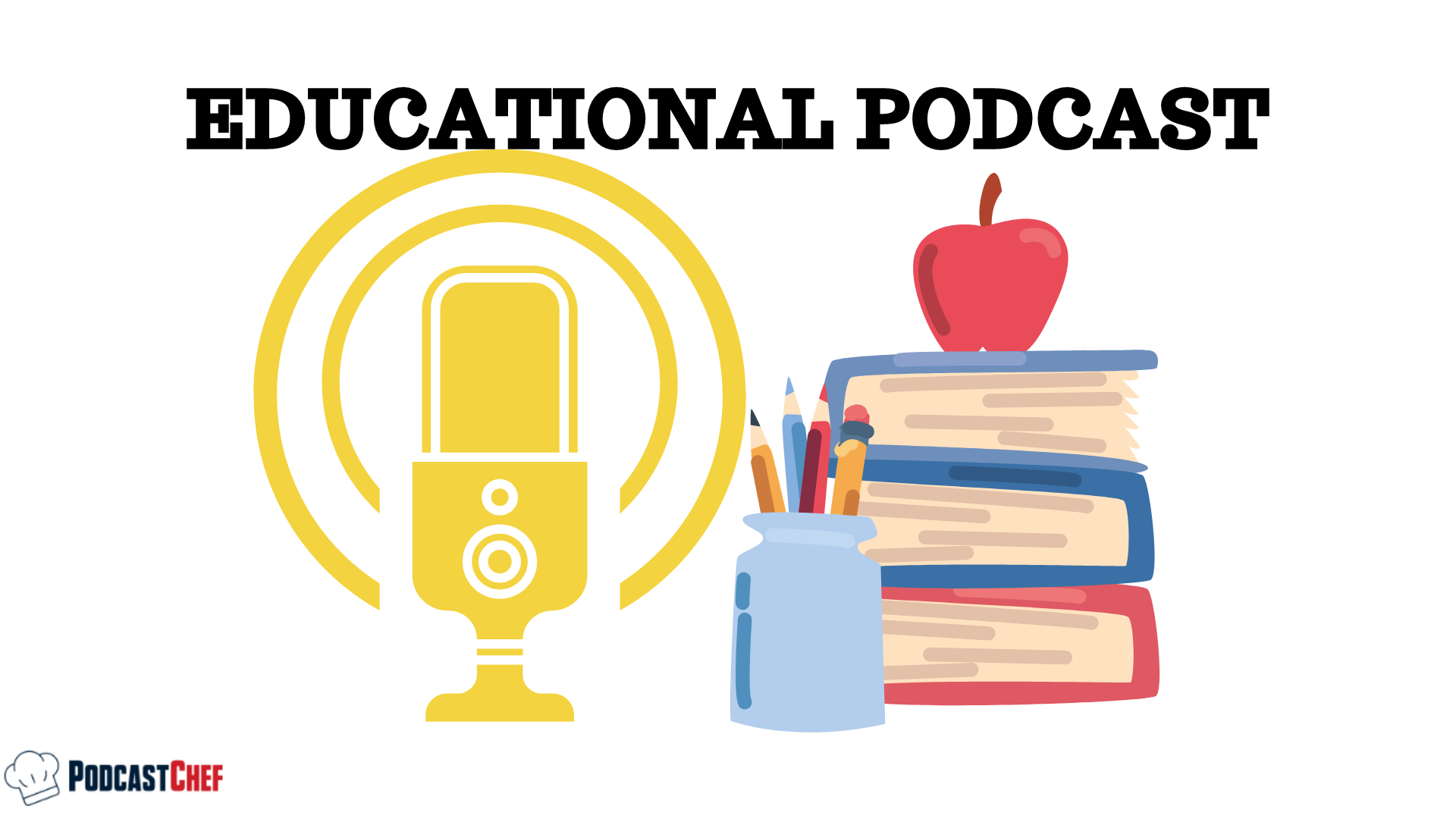
Educational podcasts typically follow a structured format comprising a well-defined introduction, substantive main content, and a conclusive segment. They emphasize contextual relevance, fostering listener engagement, and offering practical real-life applications. Educational podcasts cover a broad range of subjects such as business, medicine, science, technology, history, culture, and philosophy, appealing to a diverse audience interested in learning about various topics.
Entertainment Podcasts
Entertainment podcasts stand out with their high-quality production, compelling content, and consistent format. They frequently utilize a seasonal and episodic approach that blends entertainment and educational elements, with segmented content, storytelling, structured outlines, and deliberate episode length considerations being common features.

The success of entertainment podcasts is influenced by:
- Compelling storytelling
- Top-notch audio quality
- Audience engagement through short-form videos
- Consistent release of episodes
- Relatable content
Popular entertainment podcasts like The Joe Rogan Experience, Crime Junkie, and This American Life have achieved success due to their engaging content, compelling topics, and the charismatic nature of their hosts, which resonates with their audience.
Choosing the Right Podcast Format for Your Business
Selecting an appropriate podcast format is a key step towards crafting a successful B2B podcast. The selection of an appropriate podcast format is contingent upon the business’s objectives, target demographic, and content. Different formats such as interview-based podcasts, panel discussions, and solo episodes or monologues offer a variety of ways to convey your message and connect with your audience.
The interview-based format is recommended for B2B podcasts due to its ability to facilitate discussions with industry experts, providing valuable insights that can assist in establishing authority and engaging the target audience. On the other hand, demand generation podcasts typically focus on conversational content and are less interview-based, occasionally featuring interviews with subject matter experts.
Interview-Based Podcasts
Interview-based podcasting involves engaging in discussions with industry experts, thought leaders, or customers, who are often referred to as podcast guests, to gain valuable insights and establish connections. This format enables hosts, especially newcomers, to leverage the existing fan base and followers of the guests, thereby enhancing listenership and download numbers.
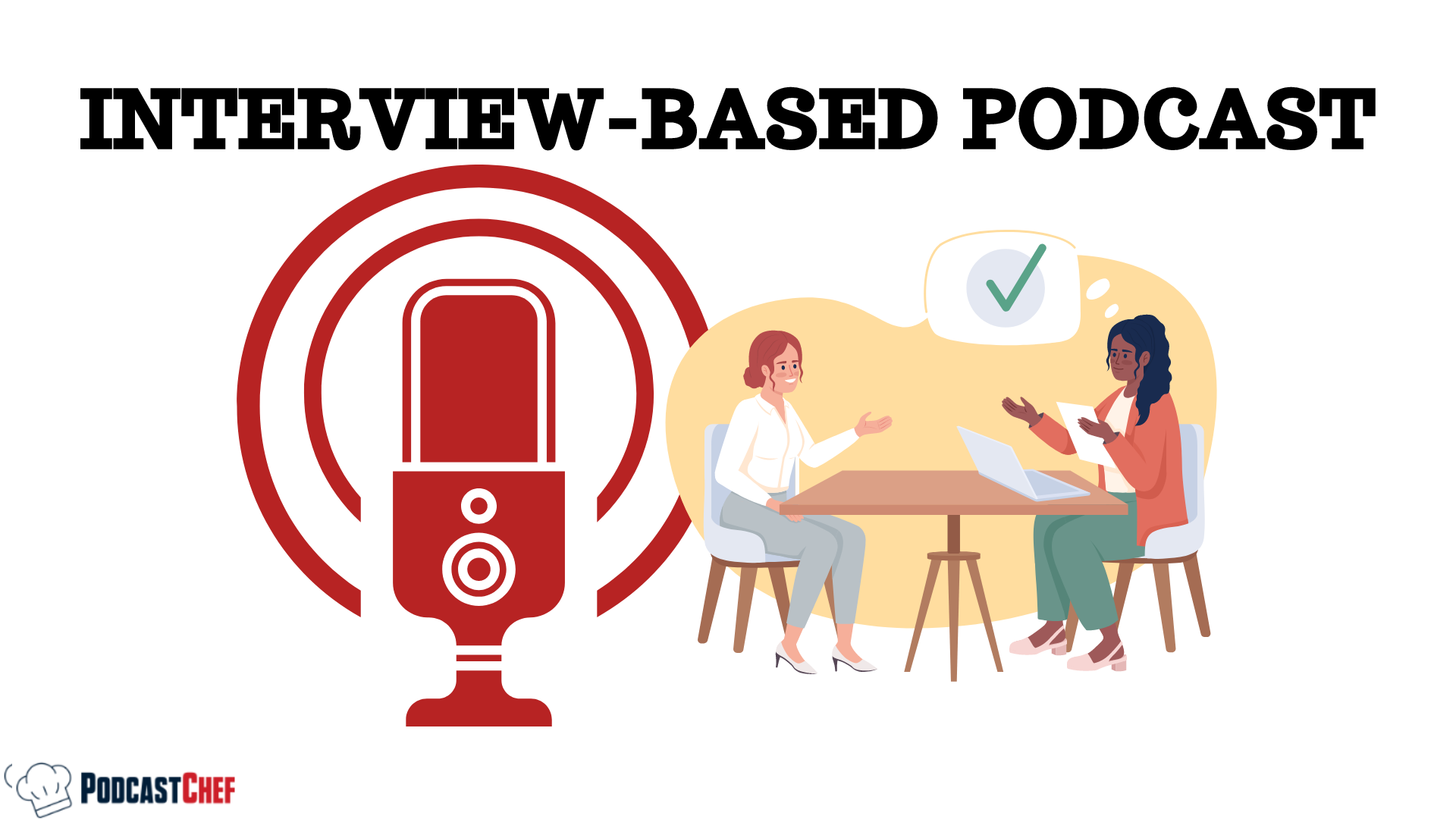
However, one common challenge faced by interview-based podcasts is securing guests for the show. Effective strategies to attract guests include:
- Utilizing Facebook Groups and pages
- Posing unique questions
- Initiating with friends and connections
- Directly reaching out to influencers
- Sending personalized and concise invitations
- Ensuring to create an engaging interview experience.
Panel Discussions
Panel discussion podcasts involve multiple guests engaging in discussions on a specific topic, providing varied viewpoints and engaging in lively debates. This format is akin to interview podcasts but emphasizes greater interactivity among the participants in each podcast episode.
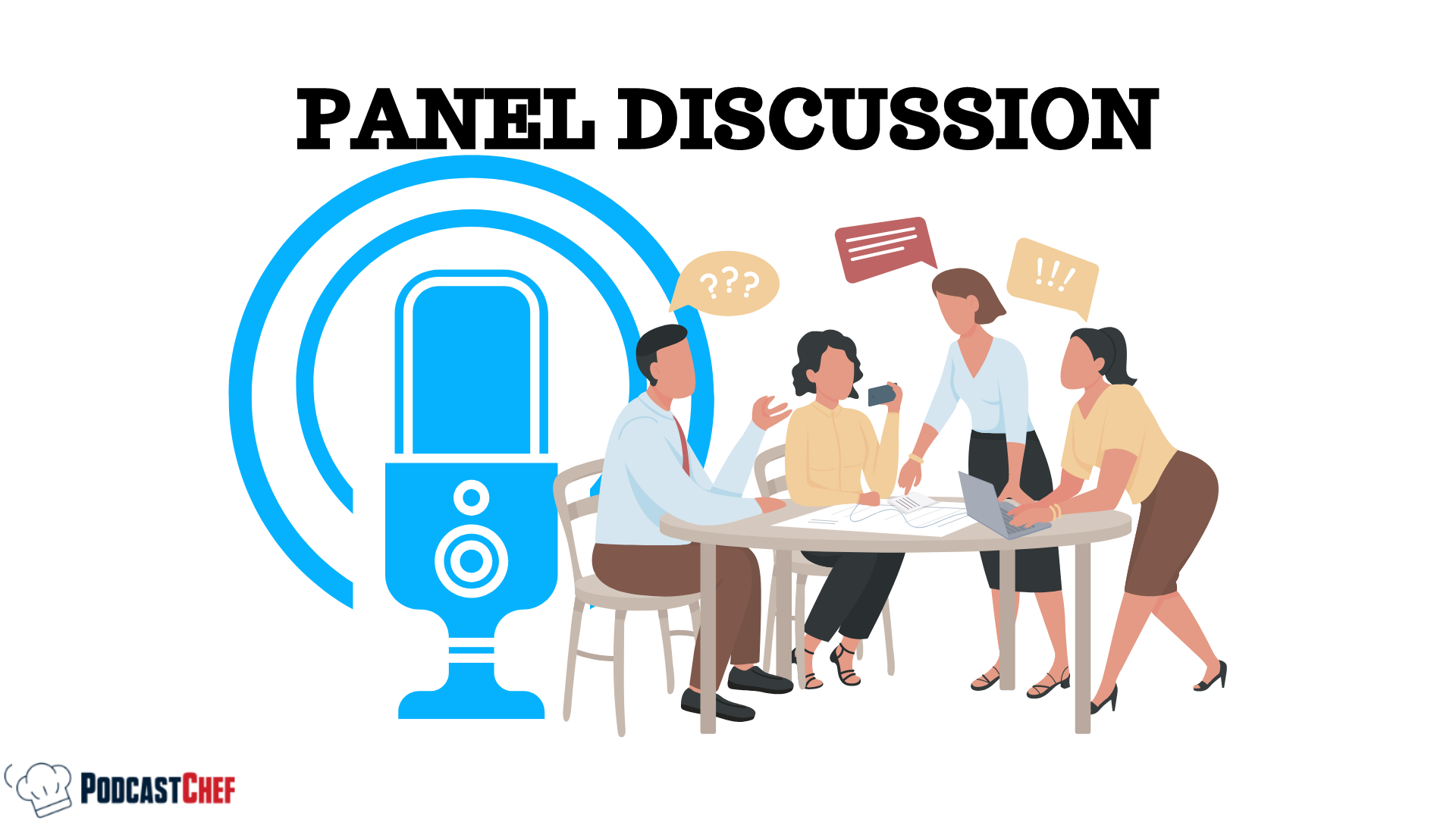
Panel podcasts offer a more diverse listening experience, incorporating a range of personalities that can help build a following more effectively. An instance of a panel discussion B2B podcast is B2B Growth, hosted by Sweet Fish Media, which provides distinctive insights in each episode. However, compared to other formats, panel discussions may require less preparation from panelists, leading to potentially less focused discussions.
Solo Episodes and Monologues
Solo episodes and monologues offer a more personal connection with the audience, allowing the host to share their expertise, experiences, or opinions on a subject. An example of a solo B2B podcast is the Selling Made Simple And Salesman Podcast by Will Barron of Salesman.com.
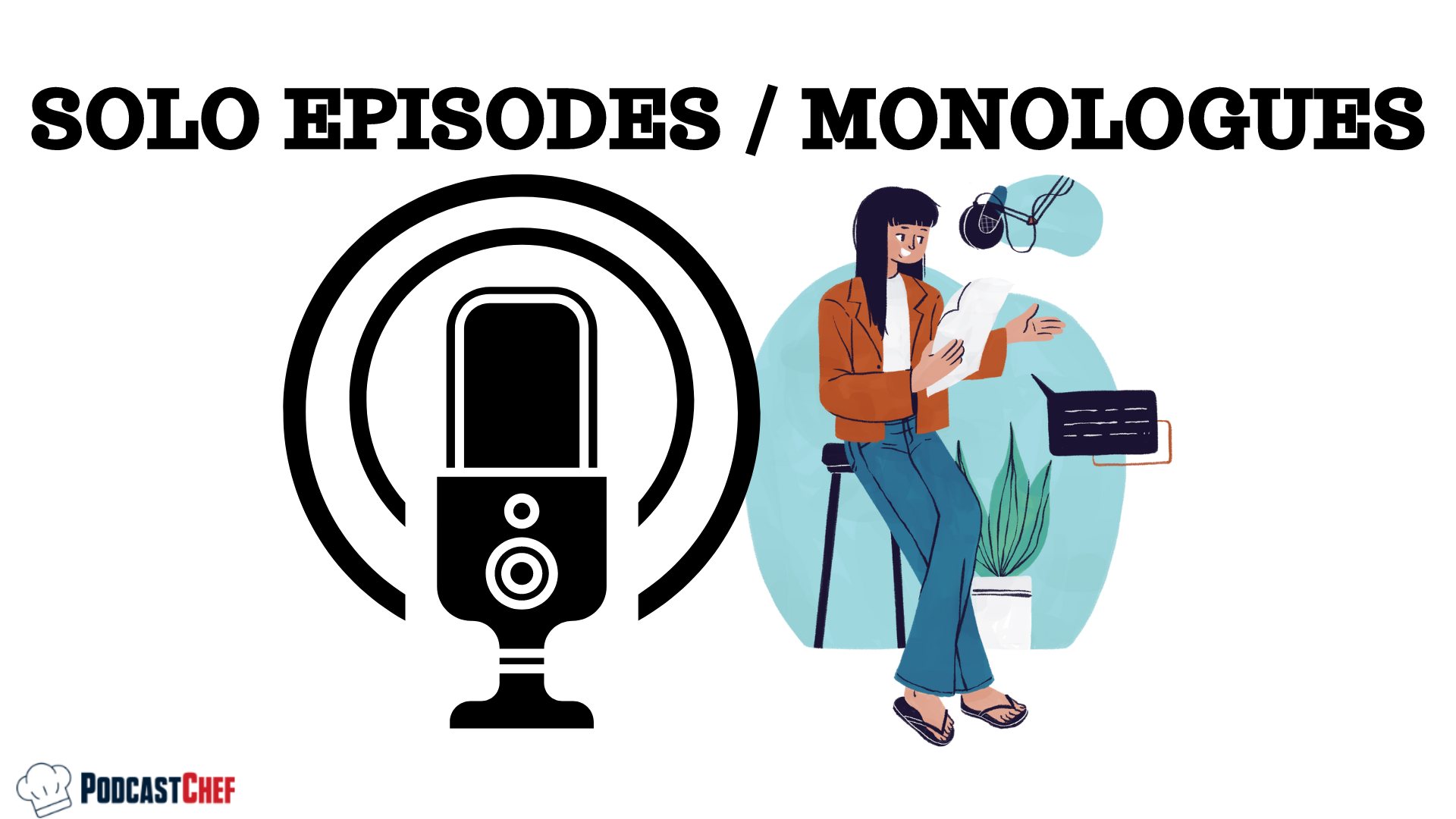
However, a solo B2B podcast may not achieve optimal results unless the host has already established authority in their industry. To establish a successful solo B2B podcast, it’s important to:
- Define the target listener
- Formulate a podcast format that aligns with the audience
- Study other B2B podcasts
- Structure episodes with an outline
- Acquire high-quality recording equipment
- Hone delivery skills
- Adhere to a consistent publishing schedule
- Leverage diverse channels for podcast promotion
- Interact with the audience
- Consistently assess and analyze performance.
B2B Podcast Distribution Channels and Promotion Strategies
Once your B2B podcast is ready, it’s important to distribute and promote it effectively to reach your intended audience. Podcast syndication, which refers to the process of distributing a podcast to various listening platforms, plays a crucial role in ensuring that a B2B podcast can be accessed by its target audience across different services.
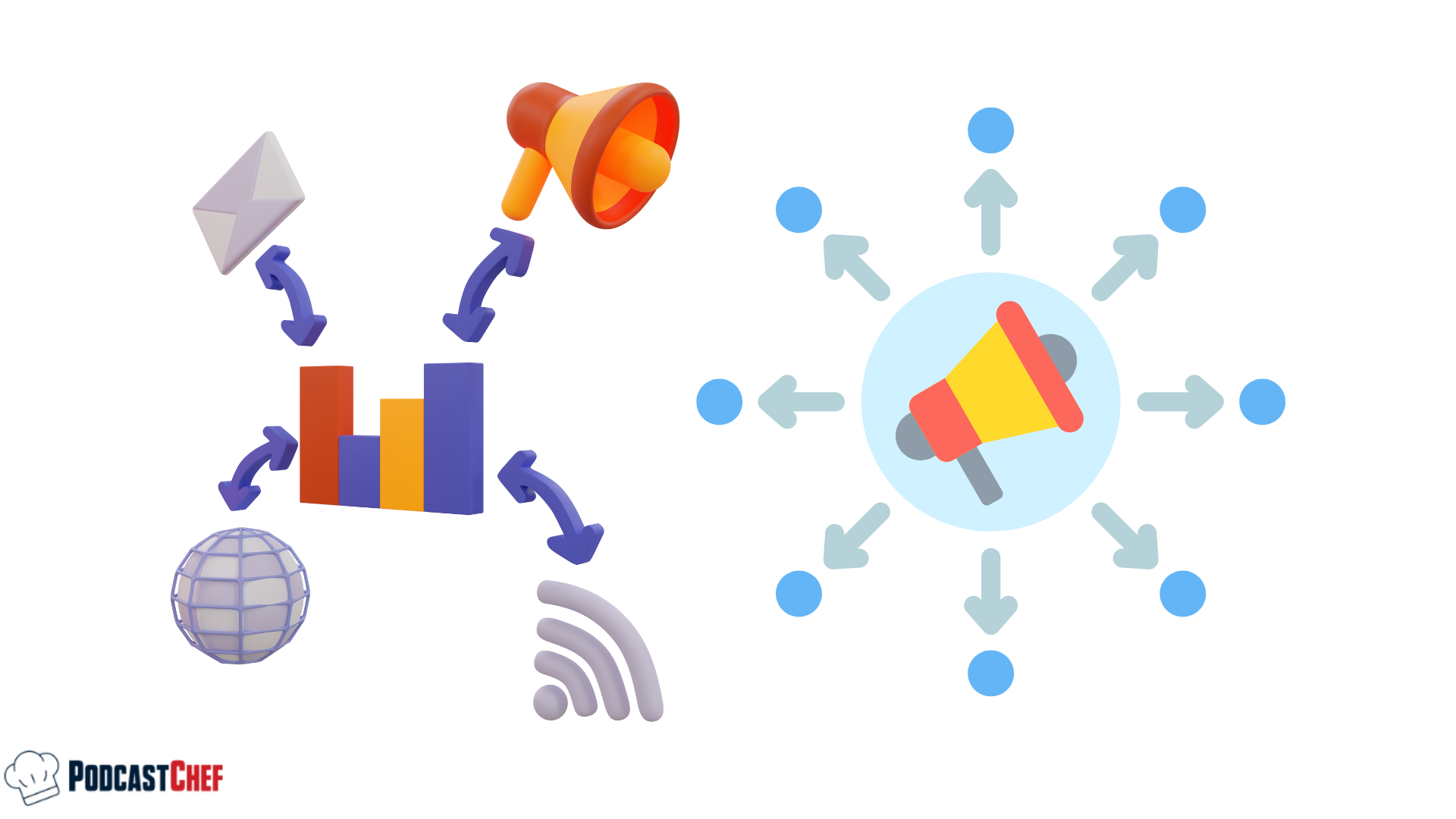
Critical hosting platforms for B2B podcast distribution encompass Libsyn and Podbean, while pivotal podcast platforms for submission are Apple Podcasts, Google Podcasts, Spotify, and Stitcher.
Effective promotion strategies for a B2B podcast include:
- Utilizing existing distribution channels
- Leveraging guest networks
- Considering paid advertising
- Forming partnerships
- Sharing content such as teaser clips and behind-the-scenes looks on social media and the company website.
Hosting Platforms
Hosting platforms provide a reliable place to store and distribute your podcast episodes. A hosting platform is a service that allows users to upload podcast episodes and generates a specific RSS feed for distribution across multiple directories.
The top podcast hosting platforms for B2B podcasts are:
- Libsyn
- Buzzsprout
- Podbean
- Podcast.co
- Castos
- Acast
- Spotify for Podcasters
- Captivate
- Hello Audio
- Megaphone
Utilizing platforms like Libsyn and Podbean can offer effortless podcast publishing, easy podcast recording, widespread distribution, comprehensive control, streamlined episode management, intelligent settings, and integrated branding.
Podcast Directories
Submitting your podcast to popular directories such as:
ensures it reaches a wider audience. The leading podcast directories in terms of popularity are Apple Podcasts and Spotify.
The process of submitting a podcast to these directories varies. For example, to submit a podcast to Apple Podcasts, you need to access the Apple Podcasts dashboard, click on the purple “+” icon, select “New Show,” and then click where it says “Add a show with an RSS feed”. To submit a podcast to Google Podcasts, it is necessary to ensure that the RSS feed is accessible by Google, the feed contains at least one episode, and a supported audio format is used.
Social Media Promotion
Promoting your podcast on social media platforms can help increase visibility and listener engagement. B2B podcasts can be efficiently promoted on the following social media platforms:
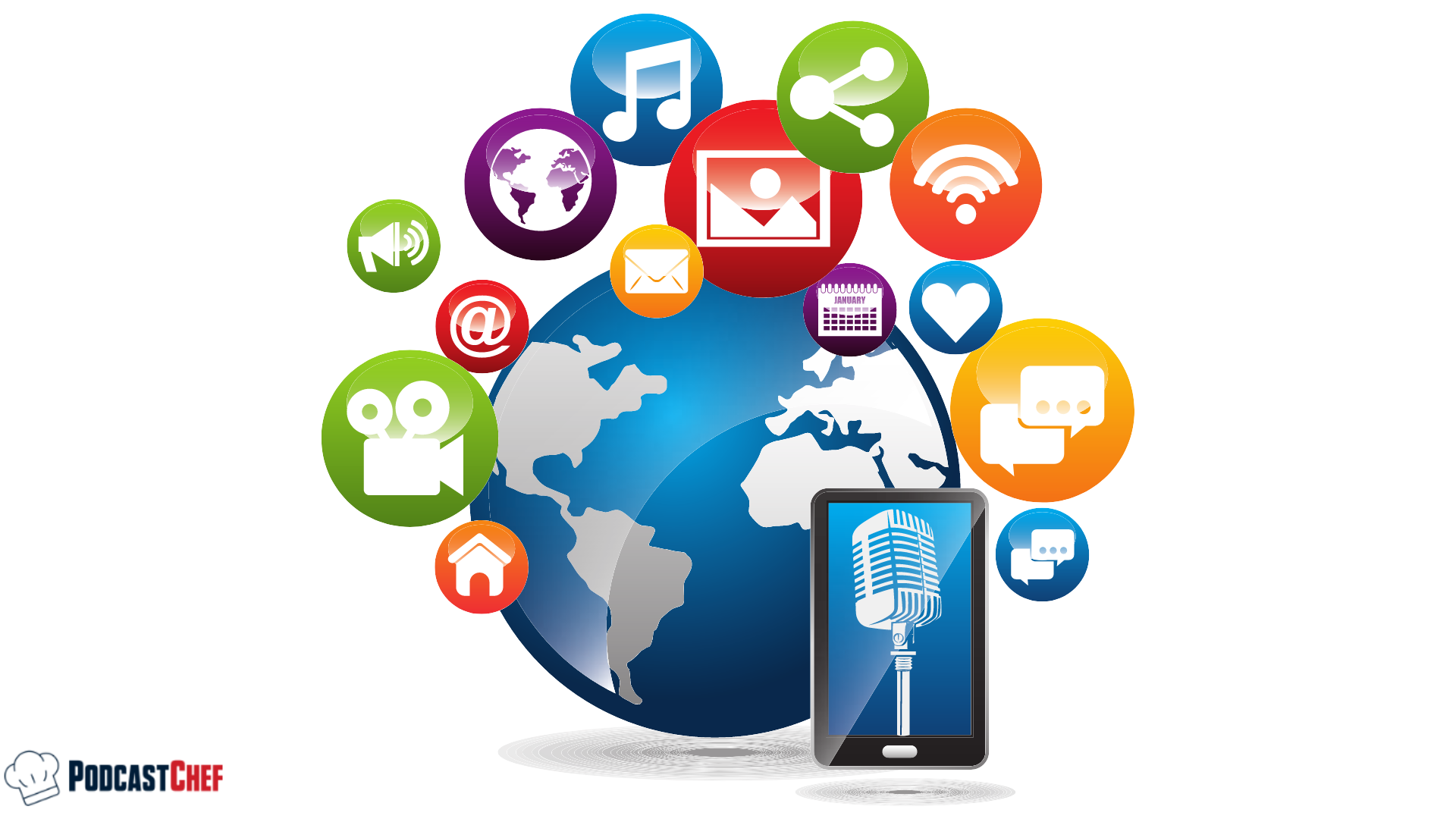
Effective promotion strategies on social media involve:
- Leveraging the networks of guests
- Creating shareable content to enhance visibility and engage listeners
- Reposting B2B podcast episodes on social media to maintain page activity and attract a broader audience.
Various types of content such as videos, audiograms, and quote blocks can be repurposed for sharing on social media to promote a B2B podcast.
Measuring Success in B2B Podcasting
Once the B2B podcast is launched, it’s important to assess its success and evaluate its impact. Establishing goals for a B2B podcast is essential for directing the strategy and implementing measures to track its success.
To assess the effectiveness of a B2B podcast, it’s advisable to monitor key performance indicators such as:
- Episode download numbers
- Listener demographics
- Engagement
- Consumption rate
- Podcast ratings
Setting SMART Goals
Setting SMART (Specific, Measurable, Achievable, Relevant, and Time-bound) goals is a critical step in creating a successful B2B podcast. These goals provide a clear direction and ensure that the objectives are:
- Specific
- Measurable
- Achievable
- Relevant
- Time-bound
Setting SMART goals helps in defining the podcast’s purpose, monitoring advancement, executing efficient tactics, enhancing brand recognition, demonstrating expertise, generating leads, and attaining sales.
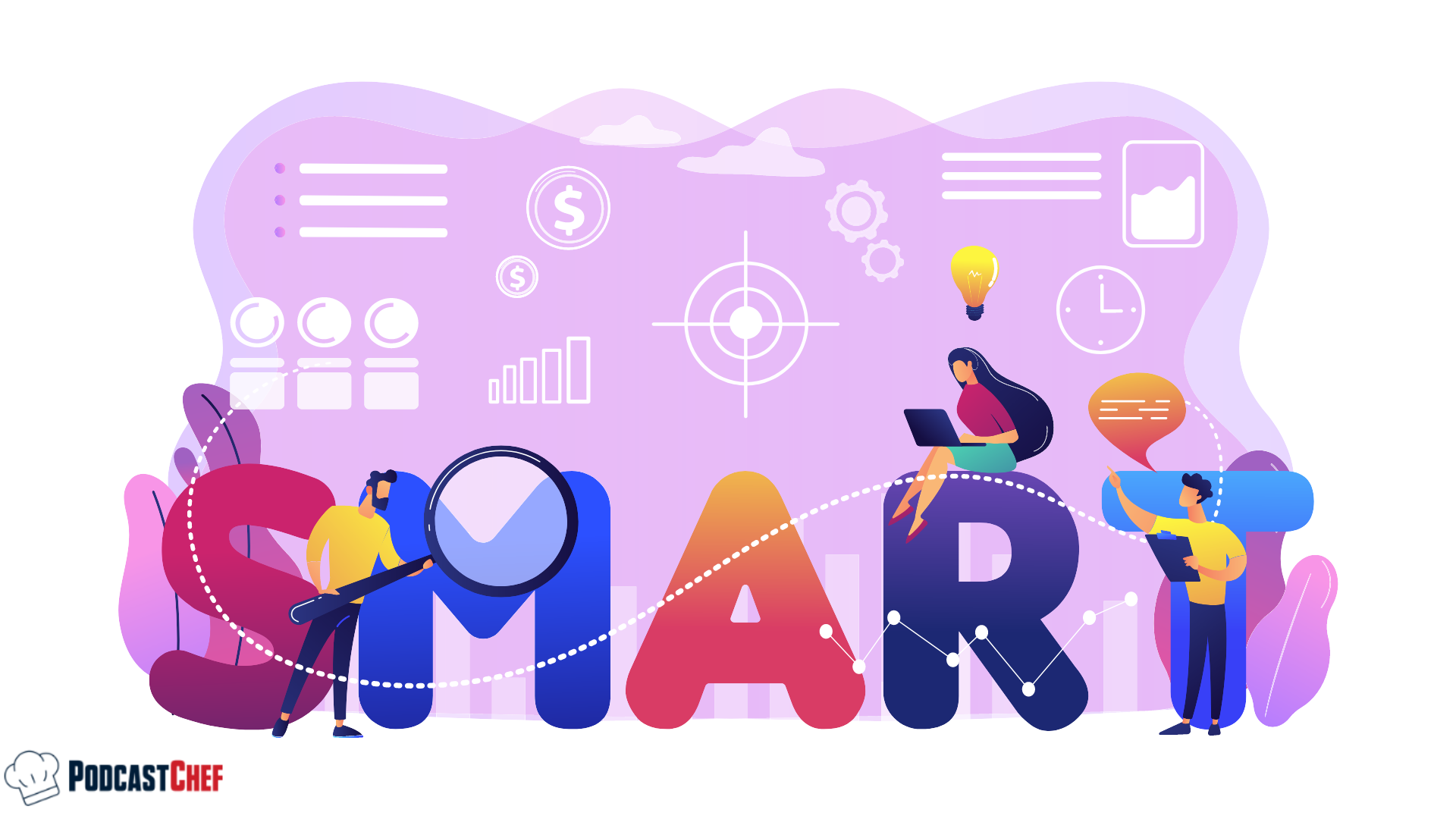
Examples of SMART goals that are relevant for B2B podcasts include building brand affinity, recruiting new employees, establishing your brand as a thought leader, and generating leads and demand.
Analyzing Performance Data
Analyzing performance data can provide valuable insights into your podcast’s effectiveness and inform future content and promotion strategies. The primary performance metrics in B2B podcasting encompass:
- Unique listeners
- Subscribers and downloads
- Rankings and reviews
- Social sharing
To analyze podcast download data, one can:
- Track the number of listeners and downloads for each episode over time
- Utilize tools like Rephonic to view listenership numbers and chart rankings
- Look at the statistics provided by the podcast host
- Obtain demographic data for podcast listeners through methods such as surveys or by using analytics tools such as Rephonic.
Summary
B2B podcasting offers an exceptional platform for businesses to share valuable insights, establish authority in the industry, and build relationships with potential clients. Its unique characteristics, such as its focus on industry-specific content and expert interviews, set it apart from other types of podcasts.
Choosing the right podcast format, distributing and promoting the podcast effectively, and measuring success through setting SMART goals and analyzing performance data are all critical steps in creating a successful B2B podcast. As we move forward in this digital age, harnessing the power of B2B podcasting will undoubtedly continue to be an essential tool in the marketing toolkit of businesses worldwide.
Podcast Chef is here to help!
We’re a white glove, all inclusive b2b podcasting company. We provide a broad range of services from podcast setup and production, through to guest booking and audience engagement. Our team would love to learn more about your goals and see if a podcast can help! Click here to schedule a free consultation and demonstration of some of the results we’ve been able to achieve.
Frequently Asked Questions
What is B2B podcasting?
B2B podcasting is a valuable tool for businesses to connect with a business-oriented audience, share important information, and establish thought leadership in the industry. It aims to strengthen brand awareness and engage with potential customers.
Are podcasts effective for B2B marketing?
Yes, podcasts can be very effective for B2B marketing as they allow you to promote your company while providing valuable information to your target audience.
What is the best type of podcast to start?
Consider starting an interview podcast, where you can have a consistent host talking to a new guest each week, with a theme that ties them together. It’s a popular format that allows for diverse and engaging content.
What is hybrid podcast?
A hybrid podcast is a show that blends different formats or styles, such as mixing solo episodes with live shows or incorporating various interview styles. It offers a diverse listening experience, catering to different preferences.
How does B2B podcasting differ from other types of podcasts?
B2B podcasts differ from other types of podcasts in their industry-specific content, professional tone, and target audience of industry professionals and key decision-makers. This sets them apart in the podcasting landscape.